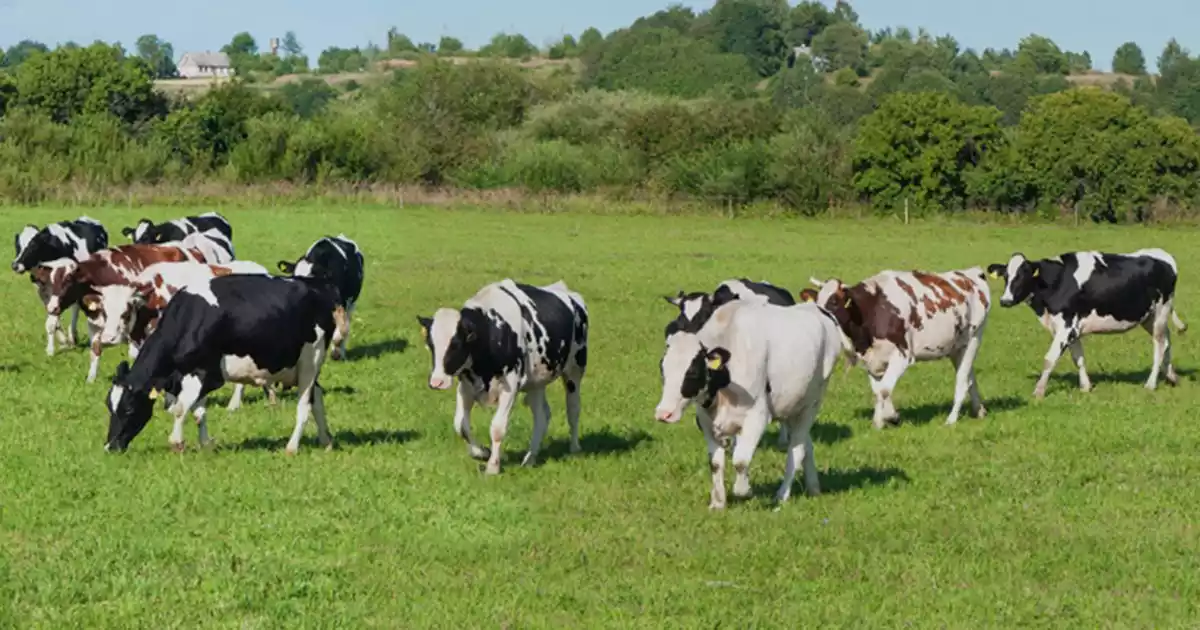What Are The Identifiable Challenges For Milk Industry?
![What Are The Identifiable Challenges For Milk Industry What Are The Identifiable Challenges For Milk Industry]()
The milk industry, a cornerstone of global agriculture, faces several notable challenges that impact its growth and efficiency.
1. Supply Chain Management Issues
One of the primary challenges is managing a complex supply chain. The journey from dairy farms to consumers involves numerous stages, including collection, processing, and distribution. Each stage must adhere to stringent safety and quality standards, which can be difficult to maintain consistently. Issues such as transportation delays and logistical inefficiencies often lead to spoilage and increased costs.
Solution: Implement advanced tracking and logistics technologies, such as real-time GPS and blockchain, to enhance supply chain visibility and efficiency. Investing in better infrastructure and storage solutions can also help reduce spoilage and improve overall operational flow.
2. Fluctuating Milk Prices
Milk prices are highly volatile, influenced by factors such as feed costs, weather conditions, and global market trends. This price instability can squeeze profit margins for dairy farmers and processors. In periods of low prices, smaller producers may struggle to cover operational costs, potentially leading to reduced supply and market instability.
Solution: Develop price stabilization mechanisms, such as forward contracts and cooperative pricing agreements. Diversifying product offerings and focusing on value-added products can also help mitigate the impact of price volatility.
3. Environmental Concerns
The environmental impact of dairy farming is a growing concern. Issues include greenhouse gas emissions, water usage, and land degradation. Sustainable practices are increasingly demanded by consumers and regulators, requiring significant investment in technology and processes to minimize the industry's environmental footprint.
Solution: Adopt sustainable farming practices, such as precision agriculture and waste recycling programs. Investing in renewable energy sources and improving feed efficiency can also reduce the environmental footprint of dairy operations.
4. Animal Health and Welfare
Maintaining the health and welfare of dairy cows is crucial for ensuring milk quality and production. Diseases and health issues can lead to reduced milk yields and increased veterinary costs. Implementing effective health management and biosecurity measures is essential but can be resource-intensive.
Solution: Implement comprehensive health management programs and invest in veterinary care and biosecurity measures. Regular monitoring and proactive health interventions can help maintain animal well-being and prevent disease outbreaks.
5. Changing Consumer Preferences
Consumer preferences are shifting towards plant-based alternatives and reduced dairy consumption. The industry must adapt to these trends by diversifying product offerings and promoting the nutritional benefits of dairy to retain market share.
Solution: Innovate with new product lines, including lactose-free and fortified dairy products, to meet evolving consumer demands. Enhance marketing strategies to highlight the health benefits of dairy and explore partnerships with organic and plant-based product companies to reach a broader audience.
Addressing these challenges requires innovation, investment, and adaptability to ensure the long-term sustainability and success of the milk industry.
Top 5 Marketing Strategies for Milk Business
![Marketing Strategies for Milk Business Marketing Strategies for Milk Business]()
The milk industry is a very competitive place to thrive in, with countless brands vying for a place in consumers' refrigerators. To stand out and thrive, milk businesses need to adopt innovative marketing strategies that resonate with their target audience. Here are five effective strategies to help you promote your milk brand and build a loyal customer base:
1. Be Thoughtful About Product Positioning and Branding
Your product positioning and branding are crucial for establishing a unique identity in the market. Define your target audience and understand their needs, preferences, and values. Develop a clear brand message that communicates the unique benefits of your milk, whether it's its natural ingredients, sustainable practices, or health benefits. Create a strong visual identity with a memorable logo, packaging design, and consistent messaging across all marketing channels.
2. Launch Your Product Catalog
A comprehensive product catalog is essential for showcasing your milk offerings and attracting new customers. Include detailed information about each product, such as its nutritional value, flavor profiles, packaging options, and available sizes. Use high-quality images and compelling descriptions to highlight the unique features of your milk products. Make your catalog easily accessible online, through your website or social media platforms, and consider offering a downloadable PDF version for offline access.
3. Offer Free Samples If You Are New
If you're a new milk brand entering the market, offering free samples is a powerful way to introduce your product to potential customers. Host sampling events at local grocery stores, farmers markets, or community events. Partner with local businesses to offer free samples with their products or services. This allows consumers to experience the taste and quality of your milk firsthand and build brand awareness.
4. Create Video Advertisements Around Breakfast with Celebrities
Video advertising is an engaging way to connect with consumers and promote your milk brand. Create short, impactful video ads that showcase the deliciousness and versatility of your milk. Focus on the breakfast occasion, as it's a key time for milk consumption. Consider partnering with celebrities or influencers who align with your brand values and target audience. This can help you reach a wider audience and create a positive association with your milk brand.
Talk to us if you are excited about getting a celebrity or an influencer to promote your milk brand!
![Promote Milk Business Promote Milk Business]()
5. Partner With Schools for Promoting Your Milk Products
Schools are a significant market for milk products, and partnering with them can be a valuable marketing strategy. Offer special promotions or discounts to schools, sponsor school events, or provide educational materials about the benefits of milk. This can help you build brand loyalty with young consumers and their families. Consider organizing school milk programs that promote healthy eating habits and encourage milk consumption.
Ending Thoughts
By implementing these strategies, you can effectively promote your milk business, attract new customers, and build a strong reputation in the industry. Remember, consistency is key. Keep delivering high-quality milk products, engaging with your audience, and watching your business grow!
![button_talk-to-us.png]()
![birthday occasion]() Birthday Gifts
Birthday Gifts
![anniversary occasion]() Anniversary Gifts
Anniversary Gifts
![women]() Women
Women
![men]() Men
Men
![Couples]() Couples
Couples
![Couples]() Wedding Gifts
Wedding Gifts

 Birthday Gifts
Birthday Gifts
 Women
Women
 Men
Men
 Anniversary Gifts
Anniversary Gifts
 Wedding Gifts
Wedding Gifts




 We now support international payments
We now support international payments
